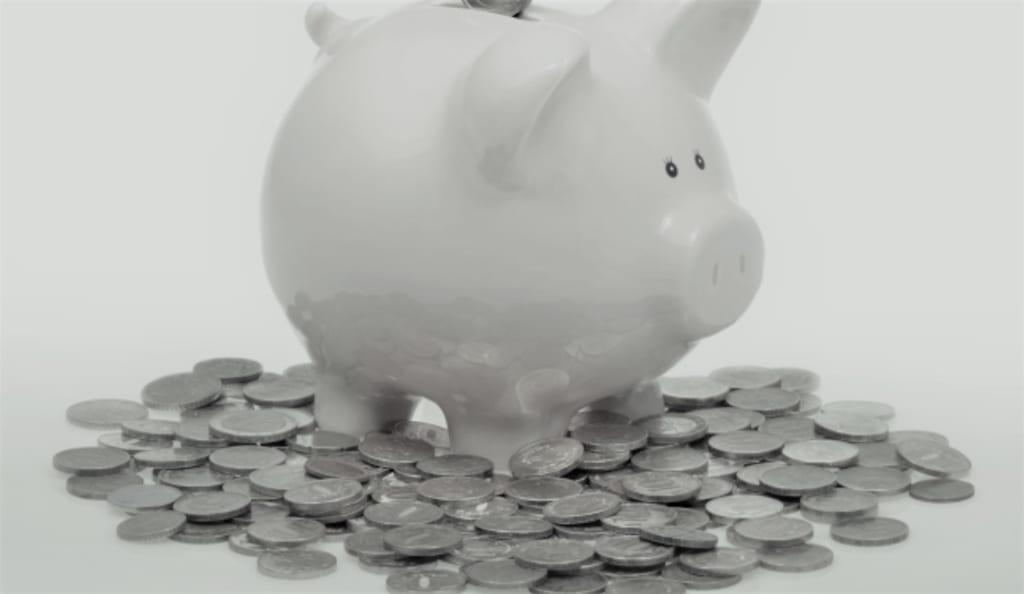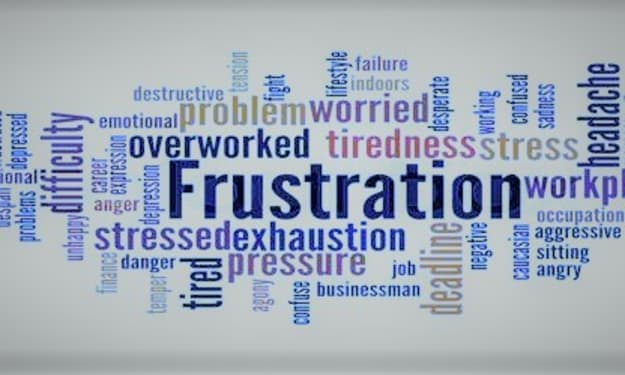Financial Security and What it Means for Your Future
What is it and is it important?

Financial Security – what does this mean?
First we have to look at what financial security is. How many of us live paycheck to about 4 days before paycheck? How many of us worry about where our next meal will come from or if we are going to have enough money to pay that electric bill? Financial security is simply a reference to that peace of mind you feel when you don’t have to worry about if there is enough money to pay the bills and buy for for the children. It’s a peace of mind that comes from knowing you got it all covered and knowing that you even have enough set back in case of emergencies. Many of us Americans are struggling with this area of our lives. We find that there isn’t enough pay but we work long hours. I find that the problem is that most of us don’t really know how to become financially secure because we don’t know how to budget or what the necessities actually are. We all go about things as a “just jump in” method. Probably not really the best idea. For me, I have found that the first step in becoming financially secure is learning what are priorities and what are not. For example, a vehicle. Yes, a means of transportation is very important for things like getting to work, doctor appointments, WORK.......BUT, do we really NEED a 2019 fully loaded Cadillac Escalade? Do you need those name brand shoes that cost $150 when you only make $10 an hour and have 2 kids to feed? Probably not. Many of us try to tie a need and a want together not realizing that you are burning your state of finance to the ground. “I NEED a vehicle so I can get to work so while I am buying a vehicle I am going to buy something super nice!” I need shoes and I really like these Nikes. I have $400 in my bank account and I need to pay rent but I want THESE shoes so it’s ok if my rent is a little late.” Many people have that mind frame and that is the frame of mind we need to change in order to become more financially stable and secure.So, the bottom line is, financial security is that feeling of relaxation and that peace of mind knowing that you have money in savings, your bills are paid, and you are not in a state of financial chaos.
Sorting your priorities
What is a budget and how do we do it?
How many of us have created this thing called a budget but didn’t really know what it was or how it was supposed to work so we just sort of didn’t budget? I am super guilty of that one! There came a time when I finally got tired of always not understanding and put money in the wrong places and then not having the money in the places I needed it. That is when I sat out to do a little bit of research. I needed to know what exactly, a budget was.
Budgeting is another form of prioritizing. When you budget, you are making sure the most important things are getting paid such as bills, rent, car payment, etc. But, budgeting is also adding in little things like going out for a family dinner once a month or taking your children out to see a movie and even that fun date night with your significant other. Budgeting allows you to set aside money for those little things that allow you to make sure your bills are still paid and you don’t break the bank in the process.
Setting Goals in the financial chaos.
This is an area a lot of us get stuck on. How do we know what is a priority bill and what isn’t?
Everybody has different needs and goals they want to achieve so below is just a general example.
Basic generic goals:
Save 6 months worth of expenses
Save $150 per month for 5 years to put away for retirement
Pay off all credit card debt
Pay down student loan debt by 25%
Cut back on food expenses to a total of $400 per month (for those families with a few children)
Here are a few ways to determine what your goals and priorities should be.
1. Review your spending habits
Collect your receipts for the next 90 days. Go about your normal daily routine, except make sure to ask for your receipt. Your actual spending will give you insight on what you are actually spending your hard-earned cash on and where you need to make some small adjustments and cuts.
At the end of those 90 days, look at all your receipts and place them in categories. Take you 3 top nonessential categories, stuff like fast food, food delivery services, and movies. Ask yourself, how much do I really need these things? Are you just grabbing and going out of pure habit? Taking a look at your spending is the first step into a much bigger process of determining exactly what your financial priorities are.
2. Understand your needs vs. wants
You may think that one of your priorities is to get lots of money and travel the world, but you still have to pay your mortgage or rent, make sure all your bills are paid and you still get to eat. When trying to figure out your priorities, you need to understand the differences between your needs and your wants.
What is a need? It’s something you must have in order to survive. You need a place to lay your head at night……with a roof over it, food to nourish your body, and healthcare so if something happens and you get sick, you got it covered!.
What is a want? Wants are something that isn’t necessary for survival but would likely add some kind of value to your life.
When it comes to figuring out your priorities, your wants may trump your needs. But your needs will ALWAYS need to come first.
3. Know the things that are important to you
Money is used as a tool to achieve your life goals, actually, it is the main component to achieving your life’s goals, so you must know and understand what is important to you because that is the key to achieving your financial goals!
Something to remember is that saving money isn’t just saving money. Saving money is the down payment on your dream home or that once in a lifetime dream vacation. Saving money is making sure you don’t have to work yourself to into an early grave.
4. Compare your short-term goals and your long-term goals
Goals…..it’s what gets us places. We set them so we get to reach our financial greatness! Write them down and number them in order of their importance to you. This is used as your guide to getting to where you want to be!
5. Check out your financial buffer
What is a financial buffer you ask? This is money you have been seeking aside for the hard times. If you don’t have a financial buffer, then absolutely none of your financial goals will matter.
Why would your financial goals not matter? Because every month you will have another emergency that will wipe out all the progress you have made towards your financial goals. A parking ticket or loss of work will cause a hit to any goal you have set.
Things happen in life that we can’t control and it can cause us to veer from the course we have set for ourselves. This financial buffer that has at least six months worth of expenses in an emergency fund, can help us to stay on our course of action.
6. Let’s get it started!
Now is the time to get started in creating your financial greatness! Start by cutting out all extra expenses that do not serve your ultimate financial goals and priorities. Calculate how much you need to put into savings each month to make your financial goals reachable. The last thing you need to do is gather your support system so they are on board with your financial journey to greatness!
Money is not the root of all Evil!
We have heard several things about money and how evil it is. Here are a few myths and their truths.
“Wanting more money is evil.”
Let’s say you are a normal human being that has kids, bills, pets, a home, a vehicle, and a life. All of which requires money to maintain. Does maintaining your living space and family make you an evil person? I seriously doubt it. Is maintaining your living space and family evil? I seriously doubt that too. Every person on this planet has to survive. Money is actually the root of your happiness! What makes me say that? Well, let's put some thought into this. If you didn’t have the means to pay your bills, support your family, and take care of your needs, then how happy would you be? I could bet you wouldn’t be very happy at all. Now, imagine if you will, your bills being paid, children being taken care of, your life in perfect fluid working order. Would that make you happy? I know that is what makes me pretty darn happy! As long as we stay away from greed and only worry about the important things, life would be a pretty chill life. Working hard and maintaining a healthy budget and spending plan is where we all want to be……..and have some extra cash sitting in the bank for those unexpected situations.
“ Buying more expensive things means they are better”
I can’t even begin to say how wrong this is. Just because it costs more, doesn’t mean it is better. Here is something most don’t know, some of those name brands are trying to pump out more and more product. Quantity over quality. To get more quantity you kinda have to skimp out on quality. Back in high school, there was 1 particular brand of shoe that was very popular. Of course, being a teen I wanted what was popular too. I talked my mom into buying a pair of these shoes and it cost nearly $140 for 1 pair of those shoes. I only wore them to school for fear of getting them dirty because I knew my mother couldn’t afford to buy expensive shoes all the time. Well, 3 months later those shoes fell apart. The soles came off while I was at school. I was so embarrassed and mad at myself for having my mother buy me those shoes that didn’t even last the entire school year. I went back to wearing my inexpensive no brand shoes that I had been wearing for over a year at that point. Truth be told, my cheaper shoes were also a lot prettier and more comfortable than my expensive shoes too.
“There is no use in saving when you are only able to put back a little at a time”
This myth is one that hurts my heart right down to its core. Every penny you earn counts. If we are being totally honest here, I make $9 an hour and I raise my 3 little girls on my own. I set back $5.00 per child and then $5.00 for myself every paycheck. Say I started that at the beginning of the year and I get paid bi-monthly, that would be $140.00 saved already. Yeah I know, it doesn’t sound like a lot BUT let's throw some math in here. In a year that would be 480.00 and in 5 years that is $2400.00. Dropping that money into a saving account will earn you roughly 1.75% a year. Say we drop that $2400.00 and don’t touch it for another 5 years, it then turns into $5375.26. If you continue to put that $40 a month into that savings account then that amount would be much higher. It’s times like these I wish we would have earned the importance of saving when we were still teens. Saving should be started early on in life but if you are like me you didn’t learn these things until you are in your 30’s or older. It’s never too late to start up your savings!
You are taking your first steps to financial greatness. Let Guiding Life Pathways guide and support you along the way. We will empower you so you keep pushing towards those goals to achieving your financial goals!
About the Creator
Stacey Owens
I am a single mom of 3. I hold certifications such as CNA, EMT, a business management diploma, certified personal coach and am a few months away from graduating with a 2 year degree in Integraded Healing Arts with a focus in Hypnotherapy.





Comments
There are no comments for this story
Be the first to respond and start the conversation.